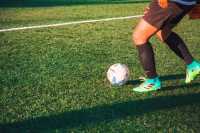
29 May Team Sports Benefits Teens With a Troubled Childhood
MedicalResearch.com Interview with:
Molly C. Easterlin, MD
Fellow, UCLA National Clinician Scholars Program
Clinical Instructor, Pediatrics, Cedars-Sinai Medical Center
MedicalResearch.com: What is the background for this study?
Response: Adverse childhood experiences or ACEs (including physical or emotional neglect or abuse, sexual abuse, domestic abuse, exposure to household substance misuse or mental illness, parental separation or divorce, and parental incarceration) are common with about half of children experiencing 1 and one-quarter of children experiencing 2 or more.
Children exposed to adverse childhood experiences have worse mental health throughout life, including higher rates of depression and anxiety. However, little is known about what factors improve long-term mental health in those exposed to ACEs. Additionally, as far as we are aware, no studies have looked at team sports participation as a potential factor that may be associated with improved mental health among those with adverse childhood experiences.
MedicalResearch.com: What are the main findings?
Response: The main findings of our study were that among those with adverse childhood experiences, team sports participation during adolescence was significantly associated with a lower odds of receiving a diagnosis of depression or anxiety by young adulthood (ages 24-32). The analysis also showed that the pathways through which team sports participation might be associated with improved mental health is through self-esteem, feeling socially accepted, and feeling connected to one’s school environment. These findings add to our understanding because they suggest that children affected by ACEs might benefit from participating in team sports and other programs that provide psychosocial support.
MedicalResearch.com: What should readers take away from your report?
Response: The take home message is that among those affected by adverse childhood experiences, team sports participation during adolescence was associated with a lower odds of depression and anxiety in adulthood. Some of the pathways between team sports participation and improved adult mental health were through improved feelings of self-esteem, social acceptance, and connection to school – therefore, these factors may be resilience-building. These results matter for patients and families because they suggest that children affected by ACEs may benefit from participating in team sports and other programs that provide psychosocial support. Pediatricians might consider recommending team sports participation for patients with ACEs and parents might consider enrolling their children with ACEs in team sports. The findings are also important because they support making team sports program accessible, equitable, and strong. For those who do not want to play team sports, other school or community programs that target feelings of self-esteem, social acceptance, and connection to school would be a good option.
Ultimately, those exposed to ACEs have worse mental health outcomes than those not exposed, so identifying interventions that increase resilience for patients with ACEs may be critical to improving outcomes. Team sports participation may be one intervention.
MedicalResearch.com: What recommendations do you have for future research as a result of this work?
Response: Future research could further examine the mechanisms by which team sports may lead to better mental health, and this could help our understanding of resilience more generally. Future research could also examine other possible interventions that are associated with improved physical and mental outcomes among those with adverse childhood experiences.
I do not have any disclosures.
Citation:
Easterlin MC, Chung PJ, Leng M, Dudovitz R. Association of Team Sports Participation With Long-term Mental Health Outcomes Among Individuals Exposed to Adverse Childhood Experiences. JAMA Pediatr. Published online May 28, 2019. doi:10.1001/jamapediatrics.2019.1212
https://jamanetwork.com/journals/jamapediatrics/article-abstract/2734743
[wysija_form id=”3″]
[last-modified]
The information on MedicalResearch.com is provided for educational purposes only, and is in no way intended to diagnose, cure, or treat any medical or other condition. Always seek the advice of your physician or other qualified health and ask your doctor any questions you may have regarding a medical condition. In addition to all other limitations and disclaimers in this agreement, service provider and its third party providers disclaim any liability or loss in connection with the content provided on this website.
Last Updated on May 29, 2019 by Marie Benz MD FAAD
